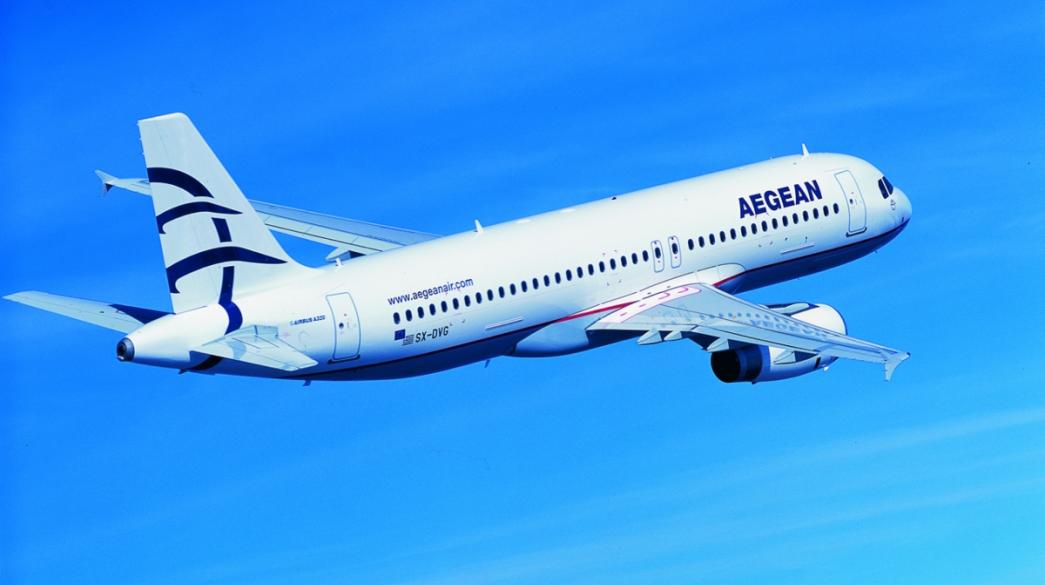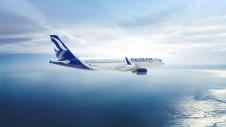Aegean shares have taken deep breaths in recovering after the announcements of the Pfizer vaccine on Monday, but challenges for the country's dominant airline remain, even if it is assumed that the vaccine will create the conditions for a better tourist season in 2021.
A key question, which will be answered in coming months, is whether it will need a capital boost after having used up 60% of its capital in the first half of the year.
From Monday to yesterday's close, Aegean shares had cumulative gains of more than 46%, outperforming European stocks (Stoxx Europe Total Market Airlines), that gained 26% in the four sessions. It is interesting to note, however, that shares in Aegean (purple line in chart) underperformed since May, due to its dependence on tourism, after having previously beaten peers. Consequently, the shares dropped 53% in the last 12 months, versus a drop of 35% in the European index.
Shares in Aegean versus Europe Stoxx Airlines Index
2020 is a year of disaster for air transport internationally, including Greece. According to estimates by the International Association of Airlines, IATA, more than 30 million fewer passengers will travel to and from Greece in 2020, in a decrease of 61% compared to 2019.
Unlike many other European airlines, Aegean did not seek government funding to withstand the pressures of this unprecedented crisis. It entered the crisis with significant liquidity reserves of 500 million euros, secured a credit line from banks for up to 120 million euros, received a loan with state guarantees of 150 million euros and, at the same time, used the state programs subsidizing staff costs.
Nevertheless, the large losses booked by airline this year have caused unprecedented pressure on its capital base. With the closing of the year it is considered certain by analysts who monitor the company that the funds will fall below 100 million euros:
• The Aegean group started this year with a very strong capital base, after a record year for Greek tourism. As of January 1, 2020, the group's capital amounted to 328.4 million euros, significantly higher than in January 1, 2019 (277.9 million euros).
• But after the first six months of the year, during which the group went through the unprecedented shock of having its fleet grounded, losses consumed 60% of cash reserves, which shrank to around 130 million euros.
• The crucial question is how much more money will be needed for the last two quarters of the year. The management of the group has predicted that in the third quarter, which is traditionally the best due to tourism, losses will amount to 25-30 million euros. Third quarter earnings are expected to be announced on November 24.
• According to analysts, third quarter losses will be slightly lower than the management’s previous forecasts coming in at 22 million euros. However, the same analysts point out that the group will suffer in the third quarter a significant burden from foreign exchange positions, which is estimated at 65 million euros. For the fourth quarter, they estimate that the losses will not exceed 20 million euros.
Based on the above, the Aegean group will enter the 2021 with a considerably weakened capital base, which will be very difficult to manage without additional support from shareholders for another bad year with a large reduction in tourist flows.
The group cannot realistically expect to be profitable in the first two quarters of 2021, but the question is whether any further losses to be recorded will make the need for a capital hike imperative.
For the second half of next year, conditions concerning the pandemic and the extent to which restrictive measures have been lifted, possibly with the help of one or more vaccines, will determine whether another tourist season is lost, or not





